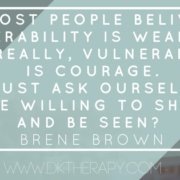The Empty Space: Dealing with the Void Left by Changing Circumstances
Life is a series of changes and challenges, some anticipated and others sudden. Career changes, moving to a new city, the end of a relationship, or the loss of a loved one can leave us feeling lost and empty. Though this void is a painful place to be, it also offers opportunities for growth and transformation.
So, if you’re currently dealing with this sense of being unanchored, take a look at a few tips for making it through the changes life throws at you.
Identify What’s Happening

The first step in dealing with significant life changes is to identify it. It’s natural for things to feel bigger than they are, and from this, it’s also natural to experience a range of emotions around the situation. Sadness, anger, and fear can make it hard to look at your circumstances objectively, but once you have a clear picture of what’s happening, you can start recovering.
Let yourself feel the feelings you’re experiencing along the way as well. Journaling, talking to a trusted friend, or seeking therapy can help you process these emotions.
Rediscover Yourself
Changes often leave us questioning our identity and purpose in life. Try to use this time to rediscover who you are. Reflect on your passions, values, and dreams. What activities or hobbies bring you joy? What causes are you passionate about? This self-discovery phase can help you chart a new course for your life.
Establish New Routines
Big changes can disrupt the daily routines we’ve built for ourselves, which can worsen feeling directionless and empty. Establishing new routines can help add structure to your life during a trying time. Having this sense of normalcy will at least give you a way to tether yourself to your reality.
Start small. Set a morning ritual, schedule regular exercise, or plan weekly meetups with friends. These small, consistent actions can help rebuild a sense of stability in your life.
Build Supportive Relationships
Human connections are important during life’s many transitions. Do what you can to surround yourself with supportive friends and family who offer you empathy and encouragement. When you need help or you just want to vent your feelings, don’t hesitate to reach out to someone you trust. Sometimes, talking to someone who has gone through a similar experience can provide valuable insights and comfort.
Engage in Meaningful Activities
Filling the void inside often involves finding new sources of fulfillment. Participate in activities that give you a sense of meaning and accomplishment. Volunteer for a cause you care about, take up a new hobby, or pursue further education. Meaningful activities can redirect your focus from what you’ve lost to what you can gain.
Reflect on Your Journey
You’re not going to get from Point A to Point B overnight, and because of this, it can be hard to feel like you’re making any progress. Take time to reflect on the journey you’ve made and compare life to where you were before versus where you are now. You may not be exactly where you’d like, but it’s important to acknowledge and appreciate your own efforts to improve.
Seek Professional Help if Needed
If the void feels overwhelming and you’re struggling to cope, seeking professional help is a sign of strength, not weakness. A therapist or counselor can you with provide tools and strategies to help you make sense of your emotions and rebuild your life.








